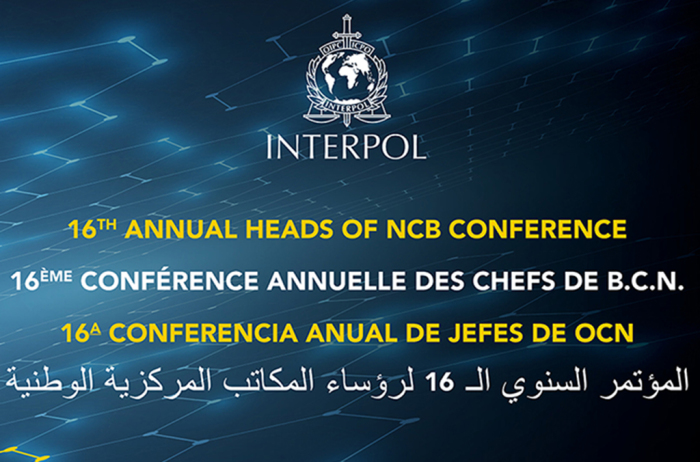WSi News2021-07-12 09:26:55
Law enforcement facing global surge in ransomware attacks and organized crime violence
With evolving threats, technology and the pandemic shifting the foundations of police work, senior police officials worldwide have endorsed measures to boost the role of National Central Bureaus (NCBs) as a gateway between INTERPOL and frontline police.
Meeting virtually at INTERPOL’s 16th annual conference for NCBs (6 – 8 July), some 300 senior police officials from 167 countries reviewed major initiatives ranging from operational and investigative support to expanding INTERPOL’s I-24/7 secure communications network to national police and border control agencies.
The measures aim to optimize the performance and operational capacity of NCBs, and to enhance international police cooperation through INTERPOL channels against transnational crime and corruption.
“In spite of the pandemic, the number of records entrusted to INTERPOL by NCBs over the past year has increased by 10 per cent to reach a record 115 million, demonstrating their role at the heart of our global early warning system,” said INTERPOL Secretary General Jürgen Stock.
With serious threats changing in lockstep with the pandemic, the meeting heard that ransomware activities generated USD 350 million in 2020, according to Chainalysis, a 311 per cent increase over the previous year.
“A global strategy in response to the threat of ransomware is critical – one where we successfully build trust, see effective exchange of data, and maximize rapid operational assistance to law enforcement agencies,” added Secretary General Stock.
With the Organization’s membership meeting with key public and private partners at the INTERPOL High-level Forum on Ransomware on 12 July, Head of the Jamaican NCB and Police Superintendent Paulette Green said:
"Law enforcement agencies must understand that globally there will always be new ways and means of committing crime using cyberspace and that they should continually develop strategies to properly deal with these issues. Cyber-related evidence is time-sensitive and when investigating any crime law enforcement must be able to capitalize on such opportunities as soon as possible."
On terrorism, Secretary General Stock said the global threat was at a crossroads, with the territorial defeat of Da’esh opening up a new insurgency phase in the Middle-East, whilst in other critical theatres such as Africa, new groups have joined the terrorist movement, battling Al-Qaeda for supremacy.
Senior police officials were also updated on Project I-CAN, a three-year INTERPOL initiative funded by the Italian Department of Public Security to combat the ‘Ndrangheta mafia group.
Noting that international cooperation via I-CAN facilitated the arrest of Rocco Morabito, a convicted mafia boss on the run from Italian justice, by Brazilian authorities in May, Head of the Brazilian NCB and Federal Police Commissioner Bruno Eduardo Samezima commented:
“I-CAN is one of the most relevant and operational-driven projects INTERPOL has launched in recent years. It has the potential to be a real game changer in the global fight against transnational organized crime, with a cyclical approach that can serve as a reference to other future INTERPOL initiatives.”
The meeting closed with a call for member countries to engage in regional partnerships based on reciprocal efforts to strengthen international police cooperation.
For more information contact:
